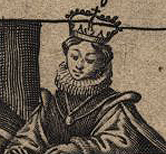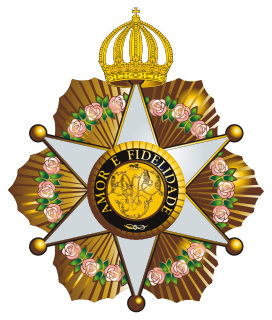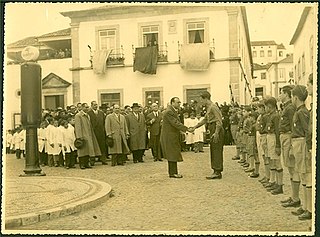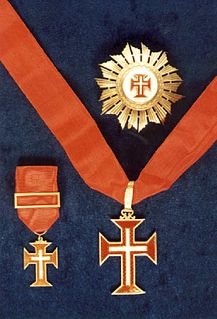| |||||
| Centuries: | |||||
|---|---|---|---|---|---|
| Decades: | |||||
| See also: | List of years in Portugal | ||||
Events in the year 1835 in Portugal .
| |||||
| Centuries: | |||||
|---|---|---|---|---|---|
| Decades: | |||||
| See also: | List of years in Portugal | ||||
Events in the year 1835 in Portugal .



Constanza Manuel of Villena, was a Castilian noblewoman who by her two marriages was Queen consort of Castile and Infanta of Portugal.

D. António José Severim de Noronha, 1st Duke of Terceira, 1st Marquis of Vila Flor was a Portuguese military officer, statesman and a leader of the Constitutionalist side in the Liberal Wars, as well as a Prime Minister of Portugal.
Jorge Torlades O'Neill, was the titular and official head of the Clanaboy O'Neill dynasty, whose family has been in Portugal since the 18th century.
Hugo José Jorge O'Neill was the head of the Clanaboy O'Neill dynasty, whose family has been in Portugal since the 18th century.
José Maria O'Neill, was the titular head of a branch of the Clanaboy O'Neill dynasty, whose family has been in Portugal since the 18th century.

The Diocese of Funchal was created originally on 12 June 1514, by bull Pro excellenti præeminentia of Pope Leo X, following the elevation of Funchal from a village to the status of city, by King Manuel I of Portugal. The new diocese was a suffragan of the Archdiocese of Lisbon.
Viscount of São Jorge is a title was created by Carlos I of Portugal, by decree dated 7 November 1893, in the name of Adriano Auguto d´Oliveira, Knight of the Royal Household, Knight Commander of the Royal Military Order of Our Lady of Conception of Vila Viçosa. Adriano Auguto d´Oliveira married Eleanor Justine du Puy de Montbrun, daughter of the Marquess Lucien de Montbrun and the Marchioness Louise Amelie Marie Soulages de Saint-Marc. He lived in Paris and died in the same city without surviving descendants.
Viscount of Vilarinho de São Romão is a title created by Queen Maria II of Portugal, by decree dated 17 September 1835, in favour of António Lobo Barbosa Teixeira Ferreira Girão (Sabrosa, Vilarinho de São Romão, 5 November 1785 - Lisbon, 17 March 1863], Member of the House of Lords, without descendants.

The Imperial Order of the Rose was a Brazilian order of chivalry, instituted by Emperor Pedro I of Brazil on 17 October 1829 to commemorate his marriage to Amélie of Leuchtenberg.
Count of Vimioso is a Portuguese title of nobility which have its origins in Alphonse, Bishop of Évora, the natural son of Alphonse, 4th Count of Ourém and 1st Marquis of Valença. Therefore, the Counts of Vimioso were closely related to the Braganzas.

The Duke of Palmela is a Portuguese title granted by royal decree of Queen Maria II of Portugal, dated from October 18, 1850, to Dom Pedro de Sousa Holstein (1781-1850), a Portuguese politician during the first half of the 19th century. He was President of the Council of Ministers and a remarkable Ambassador in London and to the Congress of Vienna.

Baltazar Leite Rebelo de Sousa, GCIH was a Portuguese politician and a former minister and member of parliament and medicine professor.
António Jorge Martins da Mota Veiga was a Portuguese politician and former Minister and law professor.
Francisco José Caeiro was a Portuguese politician and former Minister and law professor.
Miguel António de Sousa Horta Almeida e Vasconcelos, 2nd Baron of Santa Comba Dão was a Portuguese nobleman.
José Maria de Sousa Macedo Almeida e Vasconcelos, 1st Baron of Santa Comba Dão, ComC was a Portuguese nobleman, military and politician.

Events in the year 1891 in Brazil.

Events in the year 1889 in Brazil.

The Ordem Militar de Cristo, the full name of which is the Military Order of Our Knights of Lord Jesus Christ, is a Portuguese honorific Order which takes its name from the extinct Order of Christ (1834), which is given for distinguished service in the performance of functions in sovereign positions or public administration, and for the judiciary and diplomacy, which is seen as being particularly distinguished.